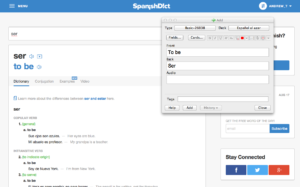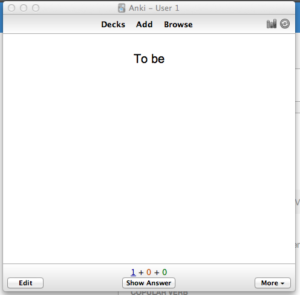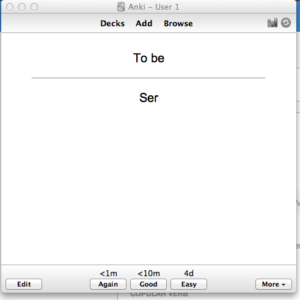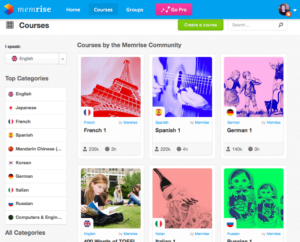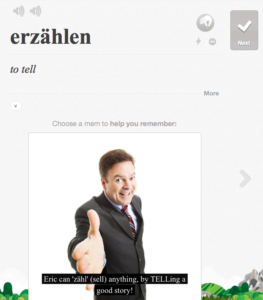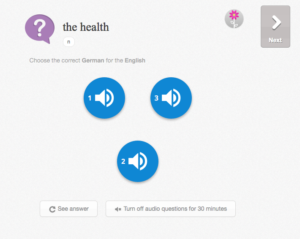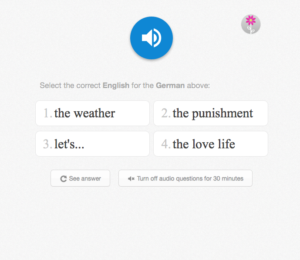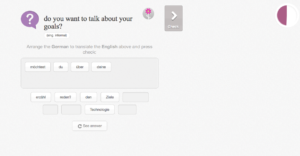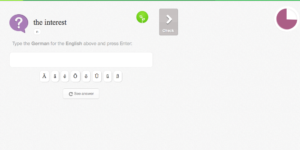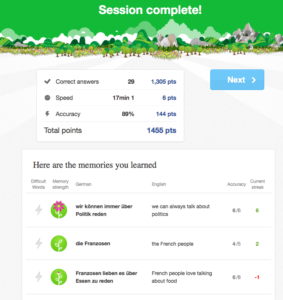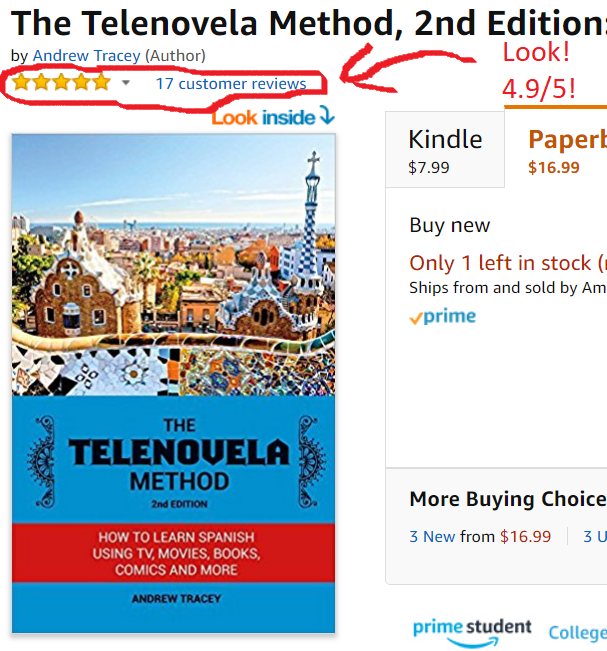Anki vs Memrise
As many of you know – and many of you are as well – I’m a big fan of Anki. People have bugged me about Memrise for years now and, although I’ve used it a fair bit, I’d never gotten around to writing a proper review of it, so I thought I would by comparing it with its obvious rival and answering a question many ask: Anki or Memrise? I particularly thought this was a good idea when I came to the point that I realized each one is better than the other at certain things.
If you’re primarily going to be making your own cards, Anki is what you want (or will want to use for that particular purpose). If you’re a beginner and primarily interested in just getting a good, quick start in the language by using already available material, Memrise is what you want.
Anki is just a lot easier to create new cards in, that’s what it was designed for, so that’s what it’s particularly good at. Yes, you can download other people’s decks and use them via Anki’s website, but Memrise just executes this idea so much better.
I’ll give you an example: I’m still working on my Spanish but I’m at a fairly advanced level (high B2 / low C1) so I just never use Memrise for Spanish, it’s useless to me for that purpose, but I’m only at about A2 in German right now so I find Memrise to be very useful and effective, as well as enjoyable to use, so therefore I use it almost daily (for German).
Please note that you can click the below images to see a larger version.
Quick Summary of What Anki Does
It’s simple: you want to make a flashcard, so you tell Anki that and write whatever you want the front and back of the card to be (in this case as an example we have “to be” on the front and “ser” on the back):
and then you review it later…
…where you’ll tell Anki how well you know it (note buttons at the bottom):
and that’s it. Anki then calculates, based on your answer, how many times you’ve reviewed it, and how often you get it right, when it’ll show it to you next (this is known as spaced repetition and is an extremely effective memory technique). I’ve got cards that only come up once every 6 months or year even. Simple (more detail on Anki here if you’re interested).
You can, by the way, add images and audio recordings to your cards, but you have to do this yourself (you have to hunt down the images and audio recordings and then add them manually). Memrise (usually) has this taken care of for you.
How Memrise Works
With Memrise you select a course…
…and then simply start learning it. They’ve already been put together for you (by the community, by other users).
You get all manner of exercises…
Basic vocabulary:
Note the arrows to the left and the right of the image, those allow you to scroll through whatever images other users have uploaded. If one of them satisfies you, you can select it as the “mem” to associate with this word or phrase (in the above case, “erzählen”). I didn’t like the first image you see above, so I scrolled through until I found and selected this one: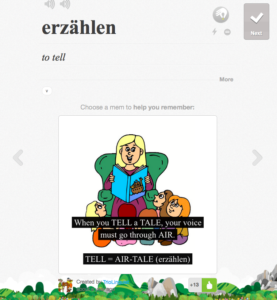
If you don’t see one you like, you may upload your own as I did in the example below.
Note how it says just above the picture “You have chosen this mem”. Well, you can choose images – visual reminders to help cue the word in your memory called “mems” in this case – to go along with each of your vocabulary cards. In this case I wasn’t happy with what was already on offer so I found this one via Google Image search by searching for “French people”.
This is what gives this site it’s name and much of its popularity: you can use any visual image you like to remind you of the answer. You can choose one from those that other users have uploaded (and even vote on them, note the little thumbs up sign in the bottom right of the first two images above) or upload your own as I’ve done in the last.
Select the correct audio:
You get three audio files that you can play, one of which will play the phrase written above (“the health” in this case), which you then select for the correct answer.
ID what you hear:
In this case you hear an audio recording and must select what you heard from several choices.
Translate by selecting the correct words:
This is a translation that’s fairly easy because it’s multiple choice (sort of): you just have to pick the right words and put them in the right order. It gets tougher later when you’ll have to…
Write the sentence entirely from memory (you’re given the English and expected to translate, to German in this case):
Note the little pie-chart-looking-thing in the upper right: that’s a count-down timer. Yes, you only have a certain amount of time to get each card right when reviewing it.
When you get it wrong…
In the above exercise I had to translate by writing and I got it wrong. What it does in this case is tell you (that you got it wrong), tell you what the correct answer is (“Franzosen lieben es über Essen zu reden”), what you wrote (“Franzosen lieben es über Essen reden”), and then give you an opportunity to do it right by writing it correctly.
I think that last part is really important and something that definitely sets it apart from Anki: you’re not just told you got it wrong, you’re immediately given a chance to do it correctly, and not only that but by actually recalling and physically writing (typing) it out. Recall is more powerful (better at forcing memorization) than recognition is, and physically having to write something rather than just thinking or saying it out loud is better still.
Good job, Memrise.
Your score:
When you’ve finished a review or learning session you’re given all sorts of useful stats like how many correct answers you got, how many points this earns you (yes, you’re ranked relative to other people to encourage a bit of competition!), what your accuracy rate was, etc.
A Demonstration of Memrise in Action (video)
Here’s a quick video I did for you guys of me learning German with Memrise, it’s unedited, a little under 5 minutes long, and covers a whole lesson:
Which One I’d Recommend
They both do different things better than the other, so it really depends on what your needs are. If you’re a rank beginner and you’re not learning lots of new vocab from other sources (like TV shows or movies if you’re doing the Telenovela Method, which you should be, ahem), then just use Memrise. If you’re more advanced and at this point you really don’t need any basic or even intermediate courses (like if you’re at least B1 level or better, roughly), then I’d say just stick with Anki.
If, however (and this is the most likely one for you), you’re a beginner/intermediate who can take advantage of one of the pre-made courses Memrise offers and you’re learning additional vocab, phrases, and grammar from other sources like music videos, TV shows, comics, or newspapers, then you’ll want to use both. They’re both free and they’re both very, very useful for the average language learner. Like I said, I use Anki for Spanish and both Anki and Memrise for German since I’m at a fairly advanced level with my Spanish but a fairly novice level in German.
I learned to speak conversational Spanish in six months using TV shows, movies, and even comics: I then wrote a book on how you can, too
I have a whole method and a book I wrote about it called The Telenovela Method where I teach you how to learn Spanish from popular media like TV shows, movies, music, books, etc. that you can all find online for free. It was the #1 new release in the Spanish Language Instruction section on Amazon for nearly a month after it came out and currently has 17 reviews there with a 4.9/5 stars average. It's available for $7.99-$9.99 for the e-book version depending on who you buy it from (Kindle version on Amazon is now $7.99) and $16.99 for the paperback (occasionally a bit cheaper, again, depending on who you buy it from).
It's currently available in both e-book and paperback from:
Cheers,
Andrew

